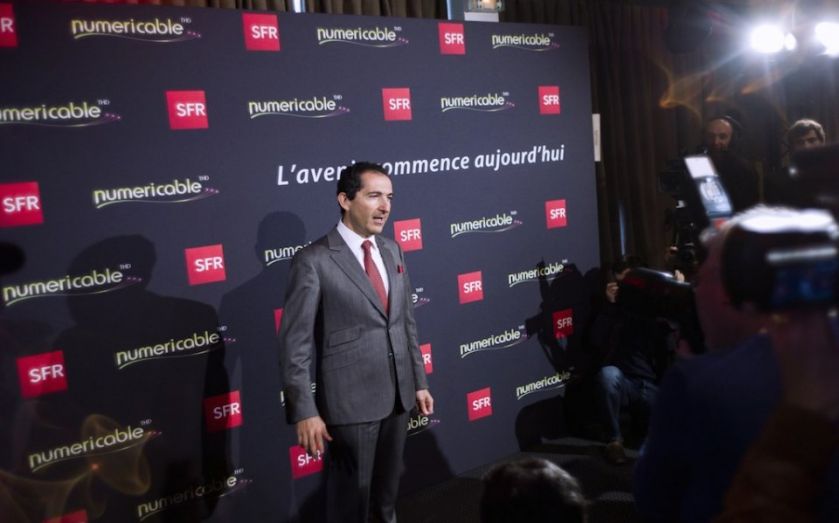Screenshot: How did a software glitch break the internet?

This week
**Media Moment of the Week: Motty goes off the rails
**How did a software glitch break the internet?
**BT’s bolt from the blue
Media Moment of the Week: Motty goes off the rails
Look, everyone loves John Motson. He’s a juggernaut of football broadcasting and I don’t have a bad word to say about him. But, much like VAR, he’s got this one horrendously wrong.
The sheepskin-clad commentator has teamed up with the Rail Delivery Group to promote safe train travel. A noble cause, you may say, but the result is this cringe-inducing mess.
How did a software glitch break the internet?
In case things didn’t seem apocalyptic enough already, this was the week the internet broke down. For around an hour on Tuesday morning a global outage wiped out some of the world’s most-visited news sites, including the BBC, Guardian and Financial Times, as well as streaming service Spotify, ecommerce giant Amazon social media platform Reddit and even the UK government website. Sadly, Twitter was unaffected, as users on the hellsite were quick to lament.
The blackout was soon attributed to Fastly, a US-based cloud computing computing company that most normal people had never heard of before. It runs a content delivery network (CDN) — a system that essentially speeds up loading times by moving data closer to users (more info on that here). Fastly apologised for the outage, which it said was caused by a software bug with one of its customers, and resolved the issue quickly. After an initial dip, its shares are now trading higher. Maybe there really is no such thing as bad publicity.
Nevertheless, the issue does raise major concerns about how the internet, which we think of as a nebulous and untouchable beast, is actually quite brittle. It’s not the first time this has happened — a bug at rival CDN provider Cloudflare wiped out a large chunk of the internet in July last year. And, as cybersecurity experts pointed out, the scale of the damage reflects our over-reliance on just a few major players. The so-called backbone of cloud computing is dominated by Amazon, Microsoft and Google, while Fastly, Cloudflare and Akamai are the major players in edge servers. As this week’s blackout illustrated, a fault at any one of these providers can have a far-reaching impact.
Analysts were quick to point out the impact on ecommerce, with one estimate putting the total loss to online retailers at $1bn. But of course, the damage could potentially go far beyond lost revenue. What’s more, while the cause of the Fastly outage was somewhat prosaic, the possibility of a more sinister incident was not far from everyone’s minds.
The whole affair, therefore, raises questions about the security of our critical infrastructure. The West has been no stranger to cyber attacks from North Korea and Russia in recent years, and last month’s Colonial Pipeline attack shows just how real the threat still is.
Governments are wary of this. In the UK, a review is being carried out into vendor diversity in the telecoms market following the Huawei ban, to ensure we’re not too reliant on a handful of players. But the same steps aren’t being taken for cloud computing. As the internet has matured it has consolidated, and convenience has always been put ahead of resilience. But as this week has shown, perhaps it’s time to step up the security.
BT’s bolt from the blue

It’s rare that a deal comes completely out of the blue, but when French telecoms giant Altice yesterday revealed it had taken a 12 per cent stake in BT — worth around £2bn — no one saw it coming. Not even the good folk at BT, it seems. While billionaire Patrick Drahi, who controls Altice, had been building up the holding for a while, it was only in a phone call to BT’s chief executive and chairman on Wednesday evening that he revealed he was now the company’s largest shareholder.
So what’s going on? In gushing statements, both sides said the deal demonstrated Drahi’s faith in BT’s full-fibre rollout plans, which were recently upgraded. An insider said the telecoms tycoon, who lives in Switzerland but has French, Moroccan, Portuguese and Israeli citizenship, had carried out a “major scour” of the UK market looking for investment opportunities, and decided that BT was his best bet. Given it’s by far the biggest player, this is hardly surprising.
More could be afoot, though. Drahi’s team are vague about his plans, but a directorship seems inevitable. After all, Deutsche Telekom — now BT’s second largest investor — has one seat on the board. Drahi has stated he has no intention of making a bid for BT which, under UK takeover rules, means he’s blocked from making an approach for six months. After that, though, it’s anybody’s guess. Drahi, who also owns Sotheby’s, has a track record of telecoms takeovers, so a full-out bid isn’t out of the question. Or, given his focus on full-fibre, he could try to push for the long-discussed spin-off of BT’s broadband arm Openreach and make a move for that.
In the short term, boss Philip Jansen will welcome the backing of a major new investor to support BT’s broadband plans. But an acquisitive new shareholder, alongside plans to sell off BT Sport, mean the telecoms giant could be in for an eventful few years.
The algorithm recommends
- Some UK nightclubs are considering reopening their doors on 21 June even if the government pushes back the date for lifting lockdown. Read City A.M.’s exclusive here.
- US tech giants could see their UK tax bills slashed thanks to the new G7 deal, inked last weekend. That’s according to a think tank report.
- The chief executive of the Guardian has stepped down after just over a year in charge following clashes with editor Kath Viner.
Got a story? Drop me a line at james.warrington@cityam.com or on Twitter